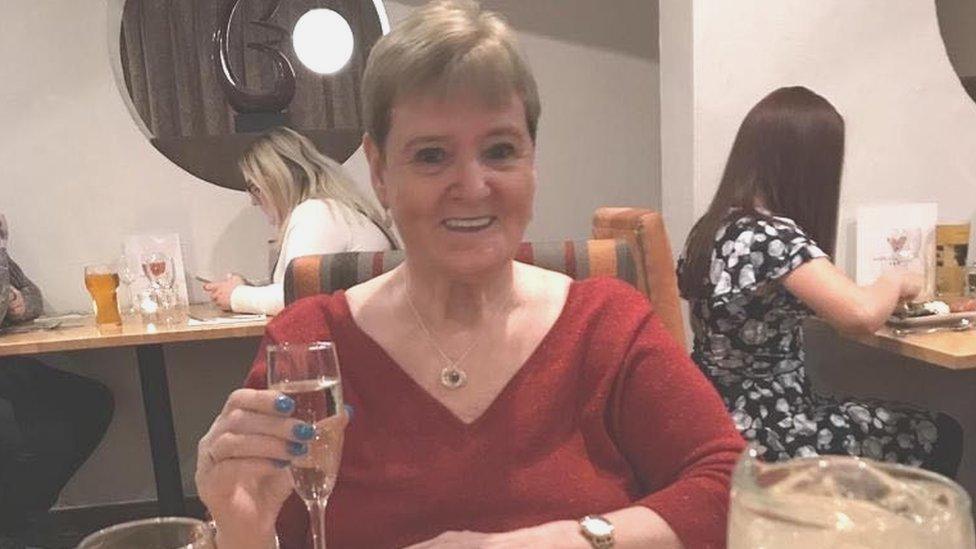Coronavirus: 'It's scarier, last time cases were few and far between'
- Published
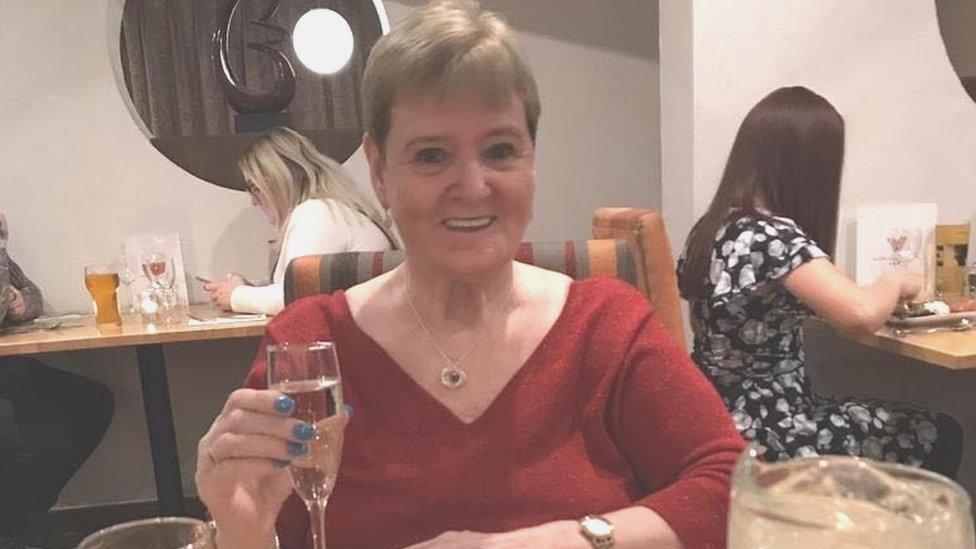
Josephine Brown died with coronavirus in April
Josephine Brown did not want to die alone.
But Covid-19 doesn't respect such wishes and, in April, the 70 year old died, on her own, in Belfast's Mater Hospital.
A day later an interview with her daughter Rhonda Tait was watched by hundreds of thousands of people.
It was raw and difficult to watch, but it told a story that was to be repeated in hundreds of families across Northern Ireland.
Rhonda Tait's interview after her mother's death struck a chord with many
For Rhonda, there was no holding her mother's hand in hospital, no goodbye and no funeral.
Six months on, Rhonda is to feature in a new government advertisement to warn of the dangers of coronavirus as the second wave hits.
'It's Groundhog Day'
"It's scarier this time," said Rhonda.
"Last time the cases were few and far between, but now you know so many people who have it and I don't want anyone to go through the gut-wrenching pain we went through.
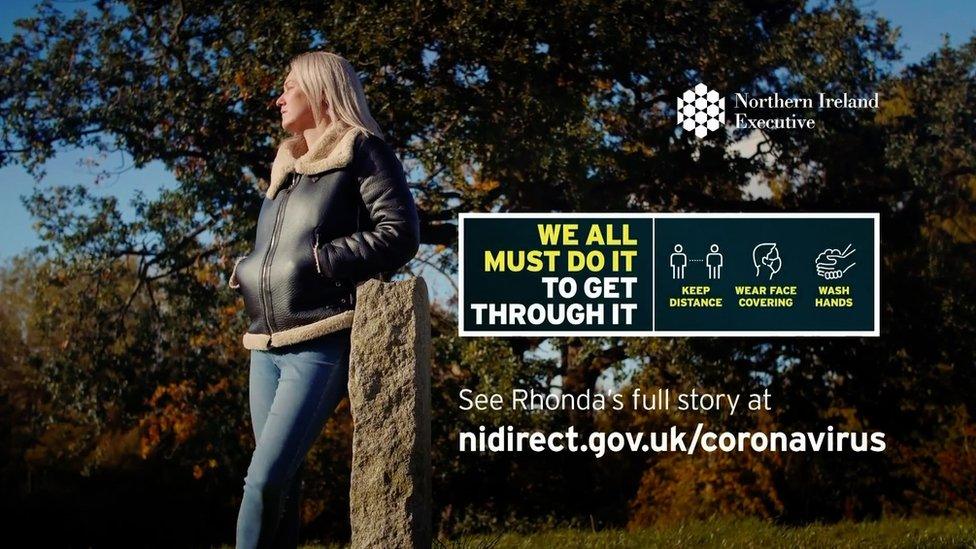
Rhonda says she is taking part in a government advert "to save lives"
And that's Rhonda's reason for taking part in the executive's advertising campaign - to save lives.
"It's groundhog day for us. We didn't get to go through the usual process of grief: Not getting to say goodbye and not having a funeral."
That lack of closure is why Rhonda's grief still feels so raw.
"There are certain streets and roads I can't drive by or drive along because that was her wee street," she said.
"Or the same with Tesco, the wee yoghurt drinks because she had one of them every morning with her breakfast. Smells, places, day-to-day usual things.
"Going to the caravan the first time when everything opened again was hard when I went into the cupboard and found her housecoat and her pyjamas that she had kept there.
"And coming across the wee personal things that we keep so that when you're having one of those bad days you can go through them."
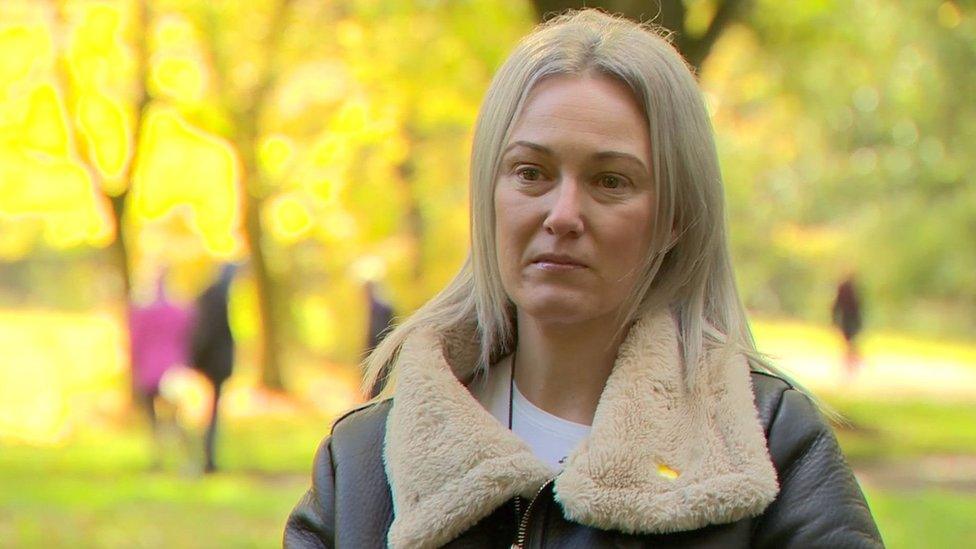
Rhonda said her her family were unable to support each other due to the lockdown
Rhonda also finds herself following people she thinks look similar to her mum.
"Maybe she has the same hair cut as mummy or the same coat and it's like obviously I'm hoping it is her, but knowing it's not."
'No togetherness'
Rhonda believes not seeing her mum after she went into hospital and not seeing her after she died has left her wondering if it all really happened at all.
"It's because you can't collect those memories of the funeral, and say on the day of the funeral you did this or you did that - or we weren't able to support each other as sisters because there was no togetherness."
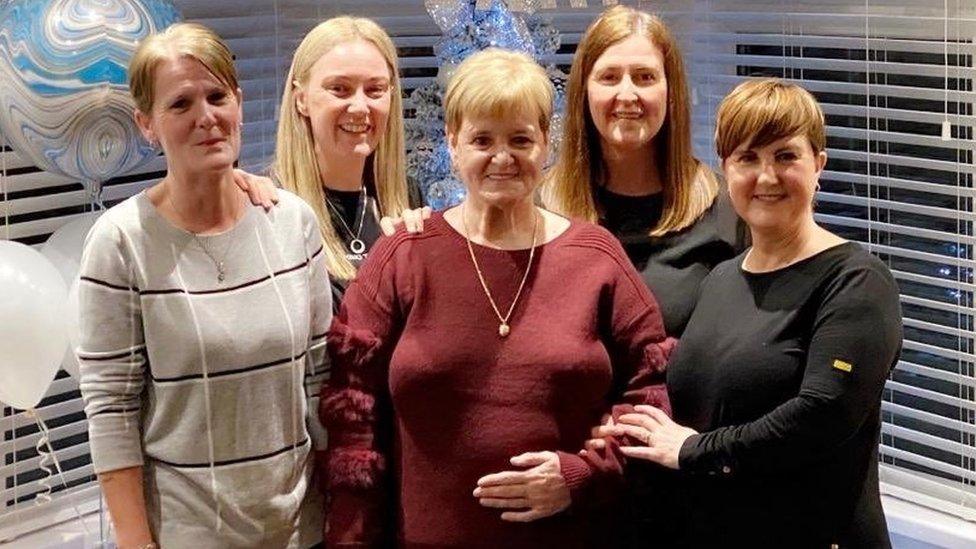
Josephine's family were unable to be with her in hospital
One thing she wasn't expecting was the reaction and scepticism of other people.
"On many occasions I have been questioned. People have said: 'Sorry to hear about your mummy.'
"And I'm like: 'Thanks for your condolences.' And they've actually said: 'But was it really covid?'
"You want to just say: 'Do you want me to go through what I was told? Everything the doctors told us? Do you want me to relay the phone calls the harrowing phone calls and words that the doctor had to tell us? Do you want to hear that?'
"But it hasn't affected their family first hand, it hasn't affected them personally."
Rhonda and her three sisters plan to have a service to remember their mum, hopefully once the Covid-19 restrictions are lifted.
"She deserved that. She deserved for her life to be celebrated."

A SIMPLE GUIDE: How do I protect myself?
AVOIDING CONTACT: The rules on self-isolation and exercise
LOOK-UP TOOL: Check cases in your area
MAPS AND CHARTS: Visual guide to the outbreak
GETTING FOOD: Food and medicine deliveries in Northern Ireland

- Published9 April 2020
